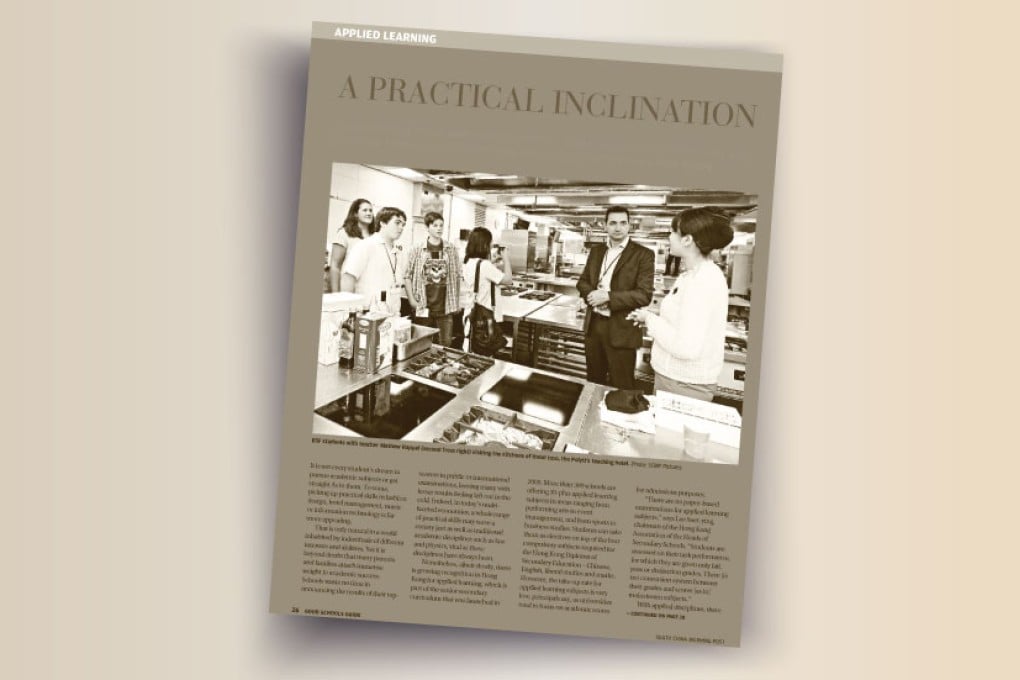A Practical Inclination
A wide range of senior secondary programmes is now available for students who want to pursue a vocational degree leading directly to a career

[First published on 7 December, 2014] It is not every student’s dream to pursue academic subjects or get straight As in them. To some, picking up practical skills in fashion design, hotel management, music or information technology is far more appealing.
That is only natural in a world inhabited by individuals of different interests and abilities. Yet it is beyond doubt that many parents and families attach immense weight to academic success. Schools waste no time in announcing the results of their topscorers in public or international examinations, leaving many with lesser results feeling left out in the cold. Indeed, in today’s multifaceted economies, a whole range of practical skills may serve a society just as well as traditional academic disciplines such as law and physics, vital as these disciplines have always been.
Nonetheless, albeit slowly, there is growing recognition in Hong Kong for applied learning, which is part of the senior secondary curriculum that was launched in 2009. More than 300 schools are offering 30-plus applied learning subjects in areas ranging from performing arts to event management, and from sports to business studies. Students can take them as electives on top of the four compulsory subjects required for the Hong Kong Diploma of Secondary Education – Chinese, English, liberal studies and maths. However, the take-up rate for applied learning subjects is very low, principals say, as universities tend to focus on academic scores for admissions purposes.
“There are no paper-based examinations for applied learning subjects,” says Lee Suet-ying, chairman of the Hong Kong Association of the Heads of Secondary Schools. “Students are assessed on their task performance, for which they are given only fail, pass or distinction grades. There [is no] conversion system between their grades and scores [as in] mainstream subjects.”
With applied disciplines, there are far more opportunities for further study abroad than there are in Hong Kong. For the past eight years, the English Schools Foundation, the largest provider of international education programmes here, has given its upper secondary students the option of work-related courses leading to the BTEC qualifications awarded by Edexcel, Britain’s largest awarding body. The pre-university vocational qualifications are recognised internationally and also by a string of institutions in Hong Kong, including the Hong Kong Design Institute, SCAD Hong Kong (the local campus of US-based Savannah School of Art and Design), and Polytechnic University.
ESF students can combine BTEC with IB diploma and/or GCE A-level courses to increase their range of choices for higher education. Currently, more than 140 students in Year 12 and 120 students in Year 13 have gone down the applied learning route, studying various subjects.

